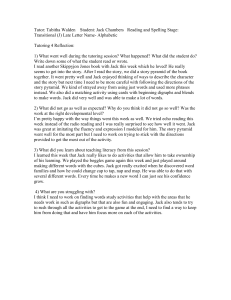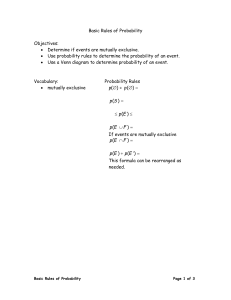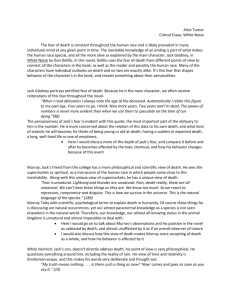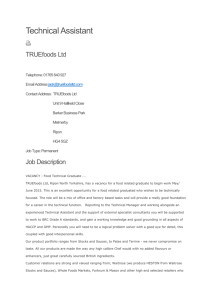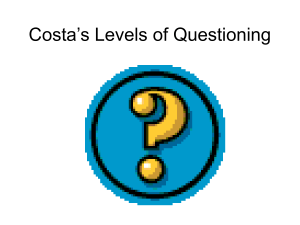HERE - UCD Science Expression
advertisement
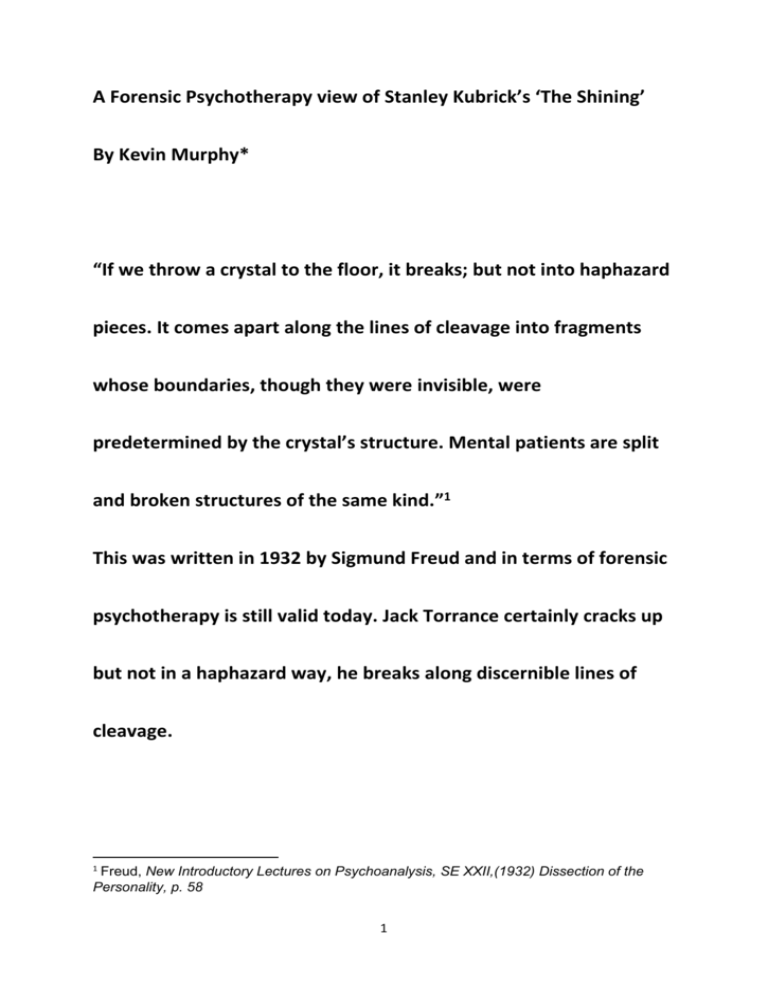
A Forensic Psychotherapy view of Stanley Kubrick’s ‘The Shining’ By Kevin Murphy* “If we throw a crystal to the floor, it breaks; but not into haphazard pieces. It comes apart along the lines of cleavage into fragments whose boundaries, though they were invisible, were predetermined by the crystal’s structure. Mental patients are split and broken structures of the same kind.”1 This was written in 1932 by Sigmund Freud and in terms of forensic psychotherapy is still valid today. Jack Torrance certainly cracks up but not in a haphazard way, he breaks along discernible lines of cleavage. 1 Freud, New Introductory Lectures on Psychoanalysis, SE XXII,(1932) Dissection of the Personality, p. 58 1 All the trappings that he evidently values - family, ambition, selfregard, identity, even narcissistic aggression – combine to disguise treacherous fault lines lying just below the surface of his personality. These fault lines pose a threat because no authentic sense of personhood acts as the glue to keep the structure together. Instead there is anxiety, paranoia and aggression, elements that are present from our earliest infant stages and which most of us manage to positively reconfigure. But not Jack... The moment Wendy discovers he is not a writer is the moment the subterfuge, the pretending, is no longer possible. His core delusion, the flimsy idea that was holding him together, has been shattered and someone will be made to pay. But he’s not a serial killer, carefully selecting his victims and enjoying the suffering he imposes. Nor is he a calculated wife killer, who might have locked 2 her out in the snow and let nature do his dirty work. No, he’s a deranged layer-down of the law, the father’s law, the corrector of wayward family members, who will project his narcissistic fury into chopping them up into little pieces, teaching them a final lesson, as if he was the warped embodiment of an exaggerated righteousness. Unlike most offenders, the thought of covering his tracks never enters his head. He is too intent on obeying a delusional command, handed down by the authoritative, fatherly figure of the hallucinated waiter, who corrected his family in the same way. Even Jack’s caretaker job is a legal obligation, handed down by a higher authority who must also be obeyed at all cost. Yet the owner of the hotel, the other male authority figure, is kindly, understanding, patient, and yet still fully in control. His name is 3 Ullman, can we hear in this ‘all man’; an ideal that Jack could have possibly identified with but chose to overlook, in the Overlook Hotel. Even chef Hallorann takes up a kindly father-figure position with Danny and is able to see in the boy something his own father has again overlooked. Jack’s ideal man comes with frightful power over those below, fearful obligation to those above, and has so little mercy or forgiveness or patience it is almost cartoon-like in its simplicity. The lines of fracture for him run fairly and squarely through his place in the world as a man and as a father, provider, protector. From the start his paranoid psychosis has been emerging. We see it in resentment to his son and disinterest in his wife, his moments with both characterised by coldness and an unnerving sense of distance. 4 In terms of the wider metaphor, characteristic of psychosis, Jack is withdrawing from external reality to an inner world and not just in his dealings with his family. His weak foothold in the social order, in his questionable ability to support his family, is already evident when he withdraws to the solitude of the hotel. He then withdraws further to the stifling embrace of hallucination and delusion. The final withdrawal comes when his psychotic rage, directed at his allknowing son, drives him into the metaphoric maze of his own mind where a frozen, catatonic state awaits. Jack’s inability to position himself as father would have us question his experiences of being fathered. Equally, his ambition to be a writer when he patently can’t write – and language disruption is a key indicator of psychosis - would have us ask why this and not some other money making scheme? The choice has a grandiosity 5 about it, much like his skewed view of fatherhood. Even the setting he writes in is like a throne room and yet how incongruous he looks in it. Being a writer promises prestige, an elevated place from which he might overlook a great swathe of humanity, as author, authority figure, as an all-man to be looked up to. Unfortunately for Jack, that coveted place is only available through the malevolent sycophancy of his hallucinated barman and waiter. When he comes apart, it is along lines of pre-existing fracture and what we see in the gaps that emerge is a lack of any authentic sense of being, which could very well be the thing that has always haunted him. Kevin Murphy, Reg. Pract. APPI., lectures in Forensic Psychotherapy on the MA in Psychoanalytic Psychotherapy at Independent College, Dublin. He is a psychoanalytic 6 psychotherapist in private practice in Dublin and also practices in one of the State prisons. 7



